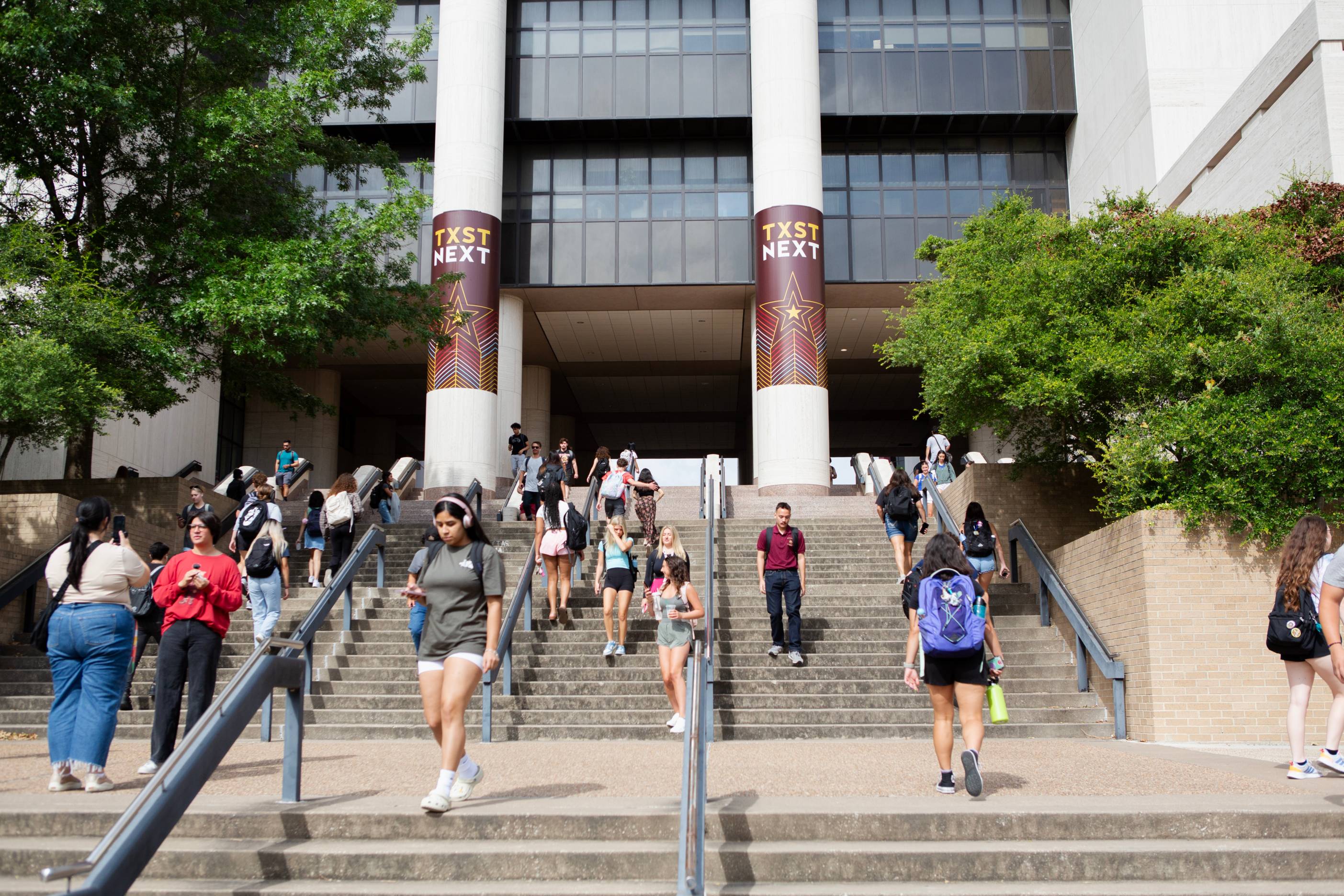Jayme Blaschke | January 10, 2024

Texas State University (TXST) has been advanced to the First Scholars phase of the First Scholars Network by the Center for First-generation Student Success, an initiative of NASPA and The Suder Foundation.
TXST was chosen based upon its demonstrated commitment to advancing the outcomes of first-generation students through improving both first-generation student success initiatives and institution-wide approaches.
“We are extremely honored to be selected as a First Scholars institution,” said TXST President Kelly Damphousse. “As a first-generation graduate myself, I know the challenges and struggles that our students often face. TXST is steadfast and innovative in our commitment to support first-gen students in their unique journeys, and it is paying off. During the recent fall commencement ceremonies, 43% of our graduates were the first in their families to earn a degree. Their success is life-changing for them, for their families, for our workforce and for our communities. Thank you to the Center for First-Generation Student Success for this honor and for recognizing the work of our dedicated staff and faculty.”
Approximately 43% of students at TXST are the first in their families to attend college. TXST’s commitment to first-gen students include two full-time staff members dedicated to supporting the university’s first-gen efforts and First-Gen Week is celebrated on both the San Marcos and Round Rock campuses in November.
“Our transformational approach to serving and supporting our first-generation students is woven into the fabric of our institutions’ commitment to first-gen student success and their pursuit in completing a college degree,” said Associate Vice President for Student Success Michael Preston, Ed.D.
Powered by the Center for First-generation Student Success, the First Scholars Network is a four-phase approach that allows institutions of higher education to advance outcomes through establishing communities of practice, gaining knowledge of resources and establishing peer networks. To date, 349 institutions of higher education have entered the network, representing 49 states and the District of Columbia. The center recently announced a commitment to serving more than 700 institutions through the network in the next five years.
Because of the university’s outstanding work, TXST has been selected to join the third phase of the network journey, First Scholars, that signals an unprecedented commitment to serving first-generation students. First Scholars serves as the center’s customized approach to intentional institutional transformation in an effort to advance student outcomes. This work establishes an environment where direct student support can be established, scaled and sustained.
“When a first-generation student attends an institution that is developed with them in mind, and has appropriate supports and resources, outcomes will improve,” said Sarah E. Whitley, Ph.D., vice president with the Center for First-generation Student Success. “First Scholars institutions have demonstrated this commitment at the highest level on campus.”
Through a phased approach designed to scaffold learning and achievement of institutions over time, First Scholars provides institutions with the opportunity to engage in student-centered, systemic transformation through an ecosystem of resources. Benefits of participation in First Scholars include:
- an evidence-based and research-supported framework of actionable priorities supported through monthly workshops;
- diagnostic tools providing critical institutional insight;
- robust data sharing as part of the national Postsecondary Data Partnership;
- guidance of expert coaches along each step of the experience;
- and customized solutions and continuous improvement plans personalized to allow each institution to meet its first-generation student success goals.
For more information about the First Scholars Network and the Center for First-generation Student Success, visit firstgen.naspa.org.
Share this article
For more information, contact University Communications:Jayme Blaschke, 512-245-2555 Sandy Pantlik, 512-245-2922 |
